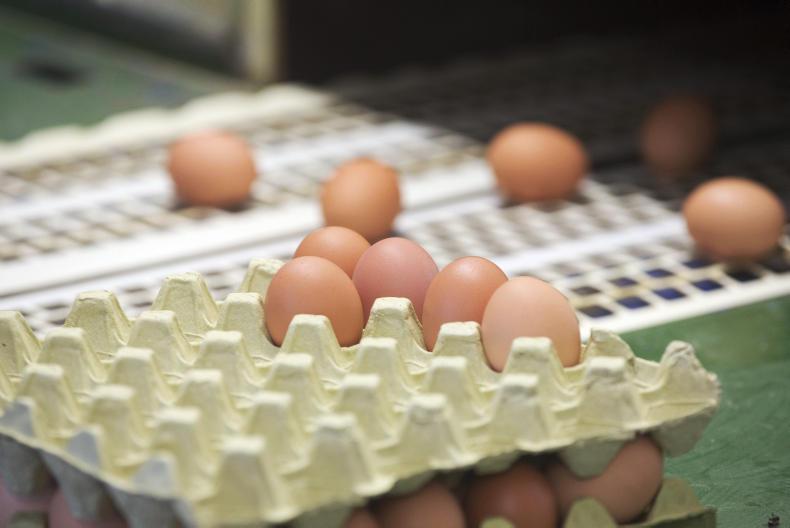Producers of free range eggs will be allowed to continue to market their products as such even if their hens have restricted access to open air runs because of influenza outbreaks following further changes to EU egg marketing standards, the European Commission has announced.
Since 2008, an EU-wide standard allowed egg producers to continue to market their products as free range – even if their hens had no open air access for up to 12 weeks.
Now however, this latest change, which comes into force on 25 November 2017, will extend this period to 16 weeks.
Economic losses
The changes to the rules come as a direct response from the European Commission to concerns raised by hen farmers about the potential economic losses for free range farms.
In times of high risk of avian influenza, EU-wide veterinary rules require hens to be kept indoors in order to reduce the risk of infections from migratory birds, as was the case in Ireland last year.
However, this is directly at odds with EU rules on free range eggs, which state that laying hens must have continuous daytime access to open air runs.
While marketing standards already allowed eggs to be labelled as free range even if birds were kept indoors as a result of EU-wide measures, the 12 week derogation was considered too short in the face of the prolonged nature of the influenza outbreak across the EU in 2016.
The Commission outlines that this meant that eggs normally marketed as free range had to be sold as ‘barn eggs’ if the hens were kept indoors for more than 12 weeks, leading to economic losses for farmers.
What do the rules mean?
The new 16 week derogation applies at flock level, rather than regions or farms.
This, according to the Commission, allows farms having introduced new flocks during the restriction period to benefit from the full derogation; eggs from each individual flock on the same farm can be labelled as free-range for the full 16-week period if open air access is restricted, regardless of when the farm came under the restrictions.
Fipronil found in small quantity of imported eggs
New bird flu text alert service in NI
Taking away free-range status ‘not viable’ for Irish farmers






 This is a subscriber-only article
This is a subscriber-only article











SHARING OPTIONS: